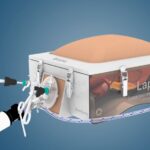Let’s face it—healthcare can be confusing, especially when it comes to the billing process. Ever looked at a medical bill and thought, “What does all this mean?” You’re not alone.
Behind the scenes, there’s a key professional who helps make sense of all those charges, codes, and insurance claims. That person is called a medical biller.
So what exactly does a medical biller do? How much do they earn? And is this a good career path to consider? In this article, we’ll dive into everything you need to know about medical billing—from responsibilities and skills to salary expectations and career outlook.
What is a Medical Biller?
A medical biller is a professional who takes the services provided by healthcare providers (like doctors, therapists, hospitals, etc.) and turns them into accurate billing claims. These claims are then sent to insurance companies and, if necessary, to patients, to ensure the provider gets paid for the work they’ve done.
Think of medical billers as the translators between the clinical world and the financial side of healthcare. Without them, doctors might not get paid properly, and patients could end up with incorrect bills. In other words—they’re essential.
What Does a Medical Biller Actually Do?
You might imagine a medical biller simply sends invoices all day, but the role is far more detailed and important than that. Let’s break down their key responsibilities.
1. Translating Medical Records Into Codes
Although coding is sometimes a separate job, many medical billers also handle basic coding tasks. They take a provider’s notes and assign standardized codes (ICD-10 for diagnoses and CPT for procedures). These codes are essential for communicating with insurance companies.
For example:
-
A flu shot has a specific code.
-
A broken leg has a different one.
-
Even a telehealth appointment has a unique billing code.
Each code must be accurate, or the claim can be denied.
2. Submitting Claims to Insurance Companies
After the coding is complete, the medical biller creates and submits the claim to the patient’s insurance company. This part of the job often involves using electronic health record (EHR) or billing software systems.
Timely and clean submission is important—errors can cause delays, denials, or lost revenue for the medical practice.
3. Following Up on Claims
One of the biggest challenges medical billers face is dealing with denied or rejected claims. If a claim gets denied, the biller must figure out what went wrong, fix it, and resubmit it.
This might involve:
-
Contacting the insurance company
-
Communicating with the doctor or coding team
-
Editing the codes or patient info
It’s a mix of detective work and patience!
4. Patient Billing and Customer Service
Not all services are covered by insurance. Sometimes, patients owe a portion—or all—of the bill. In these cases, medical billers:
-
Send out patient invoices
-
Explain bills to patients
-
Set up payment plans when needed
So, strong communication skills are a must, especially when dealing with stressed or confused patients.
5. Maintaining Financial Records
Medical billers also keep detailed records of:
-
Paid and unpaid claims
-
Patient balances
-
Collections
They often work closely with the office manager or accounting team to make sure everything lines up correctly.
6. Staying HIPAA Compliant
Because billers handle sensitive patient information, they must understand and follow HIPAA regulations (the law that protects patient privacy).
A simple mistake like sending information to the wrong email or printing private data can lead to serious legal issues.
Skills and Traits of a Successful Medical Biller
Not everyone is cut out for medical billing. It’s a detail-oriented job that blends technical skill with interpersonal communication.
Here are some key traits successful billers tend to have:
✅ Attention to Detail – One incorrect digit in a code or insurance number can cause a claim to be rejected.
✅ Organizational Skills – You might handle dozens of claims at once, each at a different stage.
✅ Good Communication – You’ll be talking to insurance reps, patients, and doctors regularly.
✅ Basic Tech Skills – You’ll need to learn billing software, EHR systems, and insurance portals.
✅ Problem Solving – Insurance denials are a puzzle—you’ll need to piece things together to find the fix.
Do You Need a Degree to Become a Medical Biller?
Here’s the good news: you don’t need a college degree to start a career in medical billing. Most employers prefer candidates with a high school diploma and some formal training.
Common Paths Into the Field:
-
Certificate programs (can be completed in 6–12 months)
-
Online courses focused on medical billing and coding
-
Associate degree in medical billing or health information management (optional, but helpful)
Certifications That Boost Your Resume:
-
Certified Professional Biller (CPB) – Offered by AAPC
-
Certified Billing & Coding Specialist (CBCS) – Offered by NHA
Getting certified isn’t mandatory, but it can help you get hired faster and earn more.
Where Do Medical Billers Work?
Medical billers are needed in a variety of healthcare settings, including:
🏥 Hospitals
👨⚕️ Private practices
🏠 Home health agencies
💻 Remote billing companies
🦷 Dental offices
🏥 Outpatient centers
🧠 Mental health clinics
And yes—remote medical billing jobs are very common now. Many billers work from home full-time, especially those working for third-party billing companies or larger healthcare systems.
Medical Biller Salary: What Can You Expect?
Let’s talk money.
Salaries for medical billers vary depending on your location, experience, and certifications. But here’s a general idea of what to expect in the U.S.:
| Experience Level | Average Salary Range |
|---|---|
| Entry-Level (0–2 yrs) | $32,000 – $40,000/year |
| Mid-Level (3–5 yrs) | $40,000 – $50,000/year |
| Senior (5+ yrs) | $50,000 – $60,000+/year |
| Hourly Contracts | $18 – $30/hour |
If you live in a high-cost area like California or New York, salaries can be on the higher end. On the other hand, rural areas might pay slightly less.
📌 Certified billers typically earn 10–20% more than those without certification.
Job Outlook: Is This a Growing Field?
Absolutely.
With an aging population and increasing healthcare demand, the need for trained billing professionals is on the rise. According to the U.S. Bureau of Labor Statistics, employment for medical records and health information specialists (including billers) is projected to grow 8% from 2022 to 2032—faster than average.
Plus, as more practices outsource their billing to third-party services, opportunities for remote medical billing jobs continue to grow.
Final Thoughts: Is Medical Billing Right for You?
Medical billing is a solid career option if you’re:
✅ Looking for job stability
✅ Interested in healthcare (but not patient-facing)
✅ Comfortable with tech and learning new systems
✅ Detail-oriented and organized
✅ Interested in remote work or flexible schedules
It may not be flashy, but it’s one of the most vital roles in the healthcare system—and it offers real career growth.
Whether you’re just graduating, changing careers, or looking for a work-from-home opportunity, medical billing is a path worth considering.
- What is a Medical Biller? Responsibilities & Salary
- A medical biller is a professional who takes the services provided by healthcare providers (like doctors, therapists, hospitals, etc.) and turns them into accurate billing claims.
- Medical Biller
Related posts:
 How to Lose Weight Fast Naturally and Permanently ?
How to Lose Weight Fast Naturally and Permanently ?
 How Laparoscopic Simulators Improve Precision & Reduce Surgical Errors
How Laparoscopic Simulators Improve Precision & Reduce Surgical Errors
 Personalized Healing at Your Doorstep: Home Nursing Services in Faridabad
Personalized Healing at Your Doorstep: Home Nursing Services in Faridabad
 Exploring the Best Non – Surgical Treatments for Fibroids in Gurgaon
Exploring the Best Non – Surgical Treatments for Fibroids in Gurgaon
 How Much Does Mole Removal Cost in Islamabad?Mole Removal Islamabad
How Much Does Mole Removal Cost in Islamabad?Mole Removal Islamabad
 Eight Key Things You Need to Know About Ultherapy Prime Today
Eight Key Things You Need to Know About Ultherapy Prime Today
 What You Should Know About Taking 125mcg Vitamin D3 Daily includes its potential to support immune function
What You Should Know About Taking 125mcg Vitamin D3 Daily includes its potential to support immune function
 Comprehensive Guide to IVF Treatment in Delhi at Sunrise Hospital
Comprehensive Guide to IVF Treatment in Delhi at Sunrise Hospital







